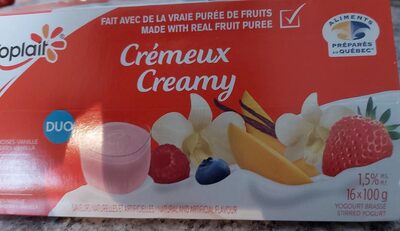
Barcode: 056920043375
Yogourth
DOUBTFUL
📝 Reason: This product contains ingredients requiring further verification. Their Halal status depends on undisclosed processing details and source materials that need clarification.
🏷️ Category: Dairies, Fermented Foods, Fermented Milk Products, Desserts, Dairy Desserts, Fermented Dairy Desserts, Yogurts, Fr:Dairy Yogurt
📄 Certificates: None
Ingredients:
Details
Understanding the Halal Status of Yogourth
Yogourth, a delectable dairy dessert, has recently attracted the attention of consumers who want to adhere to Halal dietary laws. However, the Halal status of this product is deemed ‘Doubtful,’ indicating that further verification of its ingredients and processing is needed. Let’s explore the details surrounding its Halal status, including an in-depth analysis of its ingredients and the E-numbers associated with them.
Yogourth Ingredients Breakdown
The ingredients list for Yogourth includes:
- Skim milk
- (skim milk, vitamin D)
- Sugar
- Cream
- Water
- Fruit purees (blueberries, mangoes, raspberries, strawberries)
- Modified corn starch
- Whey proteins
- Natural and artificial flavor
- Pectin
- Active bacterial culture
- Concentrated lemon juice
Let’s discuss the Halal status of these individual ingredients.
Individual Ingredient Analysis
Most of the ingredients in Yogourth are permissible according to Islamic dietary laws, but let’s break them down further:
- Skim Milk: This is permissible in Islam, with no specific concerns.
- Vitamin D: Typically derived from lanolin, a substance derived from sheep’s wool or fish liver oil, the source must be verified for Halal compliance.
- Sugar: Generally considered Halal.
- Cream: No Halal issues are present.
- Water: Generally accepted as Halal.
- Fruit Purees (Blueberries, Mangoes, Raspberries, Strawberries): All these natural ingredients are Halal.
- Modified Corn Starch: This is typically Halal, but verification from the supplier is advisable.
- Whey Proteins: The source needs clarification, as some whey proteins may originate from non-Halal animals.
- Natural and Artificial Flavor: As long as these flavors do not contain alcohol, they are generally considered Halal.
- Pectin (E440A): Often plant-derived, this is considered Halal, but specifics are needed.
- Active Bacterial Culture: Generally Halal as it is derived from dairy.
- Concentrated Lemon Juice: This ingredient is also Halal.
While many of the ingredients appear permissible, certain components, such as whey proteins and vitamin D, should be examined closely to ensure compliance.
The Impact of Processing on Halal Status
The processing of ingredients is a critical factor affecting the Halal status of Yogourth. Without clarity on how the whey proteins are derived or processed, consumers may find themselves uncertain about the Halal compliance of this product.
Brand Context and Certification
Yogourth falls under the broader category of fermented dairy products and desserts. Unfortunately, it does not come with any Halal certification, which raises doubt among Halal-conscious consumers. The absence of certification from a recognized authority can make it challenging to ensure that the product adheres to Islamic dietary laws.
Conclusion
In conclusion, while many of Yogourth’s ingredients are Halal, the overall status is uncertain due to the lack of clarity on specific components and the processing methods used. Consumers interested in Halal options should proceed with caution and consider seeking out products with clear Halal certification to ensure compliance with their dietary beliefs.
